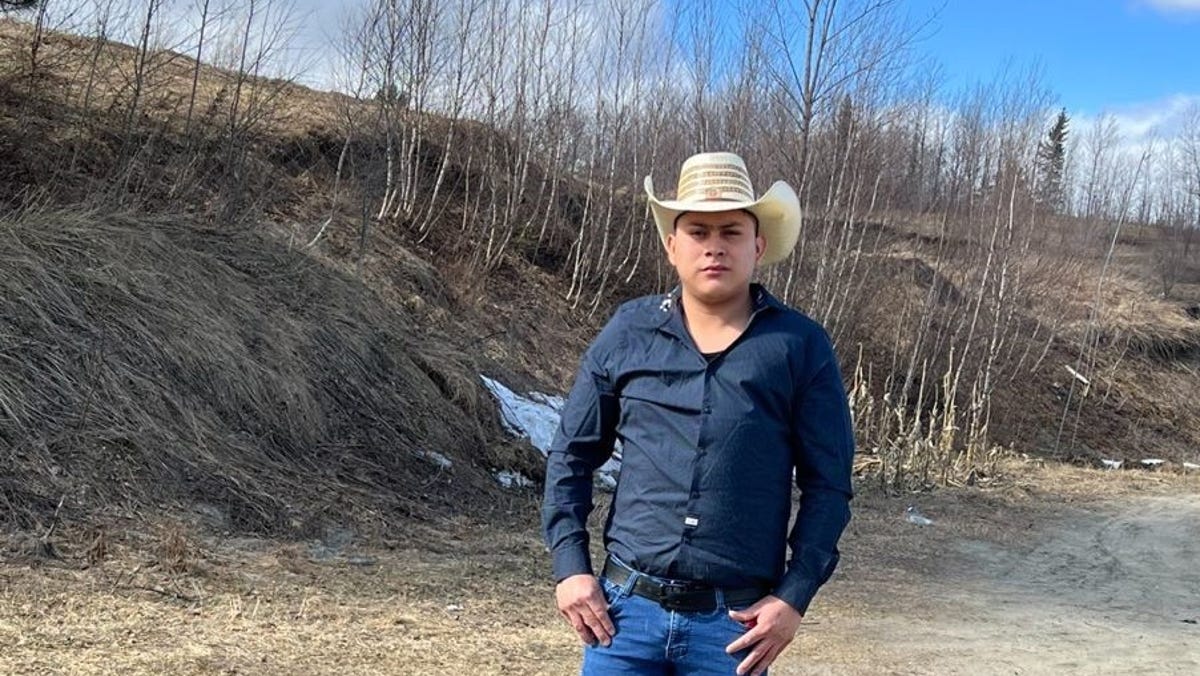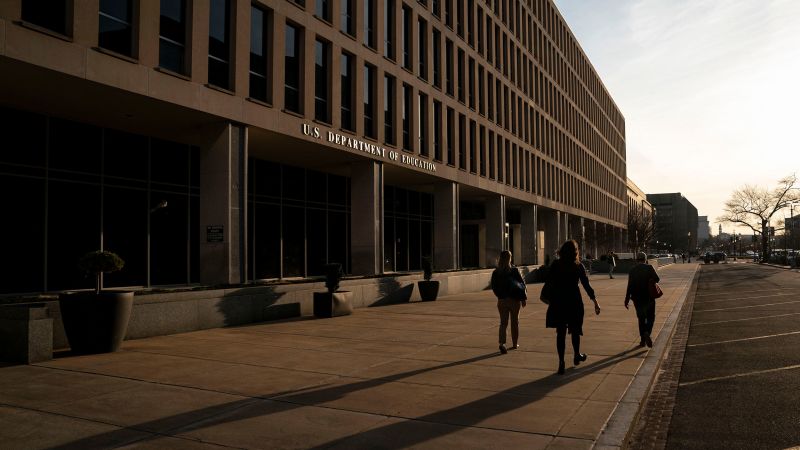Sign up for the Today newsletter
Get everything you need to know to start your day, delivered right to your inbox every morning.
/cloudfront-us-east-1.images.arcpublishing.com/gray/OLQ57LH4NFF6ZD6Y25VFPIPDK4.jpg)
WHITE RIVER JUNCTION, Vt. (WCAX) – A mobile audiology clinic to test for hearing loss is on a three-day tour in Vermont, with events in Bennington, White River Junction, and Burlington.
When it comes to your overall health care, doctors say your hearing is often overlooked. But “Songs for Sound” aims to change that with free screenings.
“I have some minor hearing loss it says,” said Terry Hall, an emergency room nurse at the VA Medical Center. But on Tuesday, he was also a patient, getting his hearing checked in the parking lot out front. “You know, lower frequency sounds — had a hard time hearing those.”
The White River Junction stop was part of a three-day Green Mountain State tour for the nonprofit. Anyone is welcome to take the free test which only takes a couple of minutes.
“The video message will walk you through the hearing test. He is going to test both ears left and right,” said Joseph Wells, Jr. with Songs For Sound.
Songs for Sound was started by a Tennessee mom in 2011 after her daughter, Lexi, was diagnosed as being profoundly deaf at 14 months old. Lexi is now a thriving teenager but Songs for Sound aims to identify gaps in care. This is the 8th year for the tour. “North Carolina for a blues festival; Then, was in Kansas City; Then, went out to Denver at the Cochlear plant; Back to Tennessee; Now, I’m up here in Vermont,” Wells said.
The experts say hearing is often not prioritized. “Oftentimes it can take about out ten years before a patient themselves will recognize that they are not hearing well,” said Jennifer Bukowski, an audiologist at the VA. The screenings not only identify potential problems but are also intended to get people the care they need. “Get them connected with an audiologist in the area that can help them with a full hearing test and help them with hearing aid recommendations if needed.”
“Your health is better, you can get outdoors and enjoy the things that you want to do,” Hall said.
The mobile unit will be at the VA clinic on Lakeside Avenue in Burlington from 10 a.m.-2 p.m. on Wednesday. Free screenings are also available online.
Copyright 2023 WCAX. All rights reserved.


Refugee resettlement groups in Vermont are reeling amid mounting federal funding cuts and suspensions but are looking to forge a path forward during uncertain times.
The administration of President Donald Trump ordered a stop to refugee arrivals in January and suspended, then eventually terminated, programs that support recently arrived refugees in their first 90 days, according to Tracy Dolan, director of the Vermont State Refugee Office.
Four of the 10 refugee resettlement groups in the U.S. — including the two refugee resettlement agencies with offices in Vermont: the Ethiopian Community Development Council and the U.S. Committee for Refugees and Immigrants — also have not received reimbursement by the federal Office of Refugee Resettlement for other programming since January, Dolan said.
“All the agencies are experiencing significant loss of federal funding, and they’re all reorganizing their programs right now,” Dolan said. “They’ve all had to lay off staff in order to manage under a new budget, and then really kind of shrink and intensify their services for those who have arrived here already.”
Sonali Samarasinghe, the interim director of U.S. Committee for Refugees and Immigrants in Vermont, said Trump’s executive order to suspend the U.S. Refugee Admission Program and the halt to funds for reception and placement programs have sowed fear in refugee communities.
“This deluge of cruel and inhumane executive actions designed to intentionally cause chaos, and confusion is impacting the lives of those who have already suffered years of violence, abuse, and trauma,” Samarasinghe said via email.
Trump’s executive order defended the actions, saying, “The United States lacks the ability to absorb large numbers of migrants, and in particular, refugees, into its communities in a manner that does not compromise the availability of resources for Americans, that protects their safety and security, and that ensures the appropriate assimilation of refugees.”
While the loss of funding for reception and placement programs is tied to Trump’s executive order, Samarasinghe said her office has received no official explanation for the lack of federal reimbursement for their other programming. Samarasinghe said she learned Wednesday that the USCRI-Vermont was one of the many Vermont organizations whose Covid-19 grant was cut by the federal government.
USCRI-Vermont’s loss of federal funding, which comprises about 90% of its budget, amounts to a nearly $1.24 million shortfall, Samarasinghe said. Among the suspended programs are one focused on employment and one that helps refugees and immigrants with intensive mental or physical health care needs.
“We already lost 11 staff, so we are struggling because you need the staff to do the work. We are struggling to serve our clients,” Samarasinghe said. “We are donating hours, but it’s a tough situation, and we do not want to lose more staff, and we want to continue to serve our clients.”
While the federal government has stopped directly reimbursing refugee resettlement agencies, Dolan said refugee resettlement funds have continued to flow to the state. Dolan said the current funding for refugee resettlement the state possesses totals $4.2 million, with $3.3 million issued from the federal Office of Refugee Resettlement and $900,000 allocated by the state.
The recipients of this funding include refugee resettlement agencies and partnered groups helping to support refugees with legal services, housing, employment, mental health, English language learning and other services, Dolan said.
The State Refugee Office has been working to allocate existing funding quickly and flexibly toward the highest priority situations, including case management, English language learning and employment services, she said.
Joe Wiah, executive director of both the Bennington and Brattleboro branches of the Ethiopian Community Development Council, said his agency has not been able to draw funds from the federal Office of Refugee Resettlement since Jan. 19, and he has not received an official statement explaining the reason behind the delay in reimbursement.
Wiah said the agency’s annual operational costs amount to $4.2 million, and federal funds directly issued to the council account for 82% of its total budget. He said the rest of their budget consists of private and public donations and funding by the state.
The pressure on the council’s cash flow has meant the council has had to reshape programs and lay off workers, losing 12 of 28 staff members between the two council locations, he said.
“If you are a refugee or immigrant or any community partner, we just want to reassure you that our offices are open,” Wiah said. “Even though it’s on a reduced capacity, we’ll continue to serve the refugee population we have.”
Jack Rossiter-Munley, the director of programs and community engagement for the Bennington branch of the council, said the withholding of funds means its original six-person staff at the Bennington Multicultural Center would dwindle down to two, and their support services for the 105 refugees in the area, some of them recently arrived, would be hampered significantly.
“What’s been so challenging for all of us just psychologically with this latest cut, is that we’re just getting our momentum going,” Rossiter-Munley said.

While no refugees are coming to the U.S. at this time, efforts continue to settle new residents in the state, said Molly Gray, executive director of the Vermont Afghan Alliance.
Vermont aimed to resettle 650 refugees during this fiscal year but had received around 250 refugees before reception and placement programs in Vermont were halted, according to Dolan.
Partnering with No One Left Behind, Vermont Afghan Alliance received five Afghan special immigrant visa holders — a single woman, a mother and daughter and a couple — earlier this month, Gray said.
The national nonprofit No One Left Behind raised funds to buy plane tickets to the U.S. for special immigrant visa holders before the Trump administration’s proposed travel ban goes into effect, likely targeting more than 40 countries, including Afghanistan.
“It’s been a small and meaningful success at a time where we’ve wondered how we will get through what feels like a relentless attack on the Afghan community,” Gray said.
Afghan people who worked to support the U.S. on military or diplomatic missions during the two-decade war in Afghanistan were promised special immigrant visas and a path to citizenship, Gray said. But, when the U.S. withdrew from Afghanistan in 2021, an estimated 140,000 special immigrant visa holders were left behind in limbo because a proper plan to process these visas was not put in place.
“It is because of their connection and commitment to the U.S. government that they had to flee Afghanistan, and so to leave them behind, to leave them in harm’s way, to leave them facing such significant risk, is extremely shameful,” Gray said.
Gray said there has not been clear communication by the federal government on when the travel ban would be implemented, or if Afghan special immigrant visa holders would be included in the travel ban.
The Vermont Afghan Alliance is not a designated refugee resettlement agency, but the federal funds it receives to support refugees had been frozen in January and then temporarily unfrozen, so the organization is still able to offer critical services to new residents, Gray said.
“Part of the problem is the inconsistencies and confusion created by these knee-jerk, largely unconstitutional actions by this administration,” she said. “Even when actions are found to be unconstitutional, they have ended contracts and ended funding, in effect, making the implementation impossible.”
While federal funding remains uncertain, refugee resettlement groups are devising creative ways to sustain their work.
Around 400 people gathered at Bennington College earlier this month for a benefit concert to support the work of the Bennington Multicultural Center, which is a branch office of the Ethiopian Community Development Council. The concert, organized by Bennington College and the Vermont Arts Exchange, raised more than $4,500 for the Bennington Multicultural Center, according to Matthew Perry, the executive director of the Vermont Arts Exchange.
Before the crowd listened to the music group Alash, a Siberian throat-singing ensemble, Rossiter-Munley announced the Deep Roots, Clear Skies Capital Campaign, with the goal to raise funds to retain staff and continue community initiatives such as a women’s entrepreneurship program, language learning program and community gardening projects.
Despite the challenging road ahead, Rossiter-Munley said he envisions that the capital campaign in Bennington will pave the way for the center to grow without as much dependence on federal funding and provide a model for other communities around the country to meaningfully sustain refugee resettlement work locally.
“We have an opportunity to truly insulate ourselves from the federal uncertainty that’s happening right now because of the scale at which we work and the kinds of communities that we serve,” Rossiter-Munley said.
Wish said the Brattleboro branch of the council is planning to launch a similar fundraising campaign in the coming weeks, and Samarasinghe said the committee has been working to diversify funding sources and fundraise as well.
Gray said that Vermont refugee agencies, support groups and other community partners will continue to find ways to share resources, raise funds and continue to work in coalition to support Vermont’s refugee communities.
“We are going to build resilience at the local level and free ourselves from federal funding so that we can continue to stand by this community and help them contribute to the Vermont economy and be thriving members of our state,” Gray said.

Burlington Free Press reporter Dan D’Ambrosio won a first place award Saturday in the 2024 New England Better Newspaper Competition in Portland, Maine, for his April 2024 story about an undocumented farm worker in Vermont who was deported to Guatemala last year, despite threats of criminal violence against him.
D’Ambrosio won first place in the Social Issues Feature Story category for his story about Bernardino Suchite Canan. The competition is sponsored by the New England Newspaper & Press Association (NENPA).
Canan had been working on an Irasburg dairy farm for seven years before his deportation, quickly rising to a management position and exhibiting the traits of a “natural-born leader,” according to the farm owner. Canan also had a pathway to a green card, allowing permanent residence in the United States, because he had been the victim of a violent break-in to his home on the farm in 2022, and was cooperating with the state’s attorney to prosecute the perpetrator.
All of that went away when Canan and his partner were detained by U.S. Immigration and Customs Enforcement (ICE) after visiting friends at a farm in New York, just across Lake Champlain. Canan was subsequently arrested for a DUI in the Northeast Kingdom.
Canan and his partner testified he had never driven drunk before, but was feeling the stress of his interaction with ICE, compounded by the anniversary of a violent attack on his mother in 2021, which ultimately resulted in her death. Canan himself had fled Guatemala at 16 to escape criminal violence.
An immigration court judge in Boston deported Canan despite the state of Vermont agreeing to put him into a diversion program on his pending DUI charges, which means the charges would not have gone on his record once he completed the program. The owner of the Irasburg farm also provided a glowing letter of recommendation for Canan to the immigration court, to no avail.
Canan was represented in immigration court by Vermont Law & Graduate School Professor Brett Stokes and a team of student lawyers in the school’s immigration clinic.
“Lifting up the voices and the stories of Vermont residents is what the reporters at the Free Press strive to do each day,” said Caitlyn Kelleher, New England Group Editor. “It is an honor to receive recognition for this work from our peers and the professional organization of NENPA. Additionally, we appreciate the courage that it took Bernardino Suchite Canan to tell his story to Dan. The stories of migrants are not just one for the U.S. southern border communities or big cities. Dan’s reporting shows the daily struggles of the undocumented immigrants living and working in Vermont.”
D’Ambrosio also won a first-place award last year in the History Reporting category for his story about Saswa and Conauda, two Potawatomi boys, ages 17 and 15, respectively, who were brought to Vermont in 1827 by a Baptist missionary to study at Castleton Medical College, the first private medical school in the nation.
Within four years, by 1831, both boys would be dead from tuberculosis, and their stories would recede into obscurity for nearly two centuries, until an investigation of Indian Boarding Schools by the U.S. Department of the Interior was published in May 2022. The report included a brief reference to two Indian students in Castleton, which led to the Free Press investigation.
“This look at two teenage boys’ brief time in Vermont nearly two centuries ago does a masterful and nuanced job of telling the broader story of the country’s treatment of Indigenous people,” the competition judges wrote last year about D’Ambrosio’s story.

Local News
Central Vermont Humane Society rescued an “unlikely trio” who were found wandering together one night: two stray dogs and a cat.
NBC 5 reported that when the pets were found walking around Williamstown together on March 3, they were in “rough shape.”
“It was immediately apparent they had not been receiving basic care for a while, so we got to work getting them healthy, and giving them all the love they soaked up,” the humane society wrote in a Facebook post Monday.
The humane society said the relationship between the three animals is reminiscent of the “endurance and commitment to friends” seen in the movie “Homeward Bound.”
Though the dogs, River and Rain, quickly came out of their shells, the cat, Reed, stayed timid.
“Until….we brought River and Rain to his colony room to visit, and he lit up like [a] happy boy,” Central Vermont Humane Society said. “The three of them shared head bonks, muzzle rubs, purrs, and cuddling.”
The trio would be happiest being adopted into one home, they said. In an update to the post Saturday, Central Vermont Humane Society said the three animals started a foster-to-adopt trial with a couple Friday.
“It’s important for all that these sweet souls are in the best environment for their needs, so we’ll give it a little time to be absolutely certain they’ve found their happily-ever-after,” the post said.
Get everything you need to know to start your day, delivered right to your inbox every morning.


Film Review: Rachel Zegler is the Best Part of an Otherwise Dull Remake of ‘Snow White’ – Awards Radar


ICE Tells a Cornell Student Activist to Turn Himself In


EXCLUSIVE: Groundbreaking new prayer book designed for demographic most targeted for abortion


Shooting at Park in New Mexico Leaves at At Least 3 Dead and 16 Injured


Trump Is Trying to Gain More Power Over Elections. Is His Effort Legal?


Washington Bends to RFK Jr.’s ‘MAHA’ Agenda on Measles, Baby Formula and French Fries


Dismantling the Department of Education will strip resources from disabled children, parents and advocates say | CNN


Left-Wing Democrats Wait on AOC’s Decision as They Look to 2028 Election